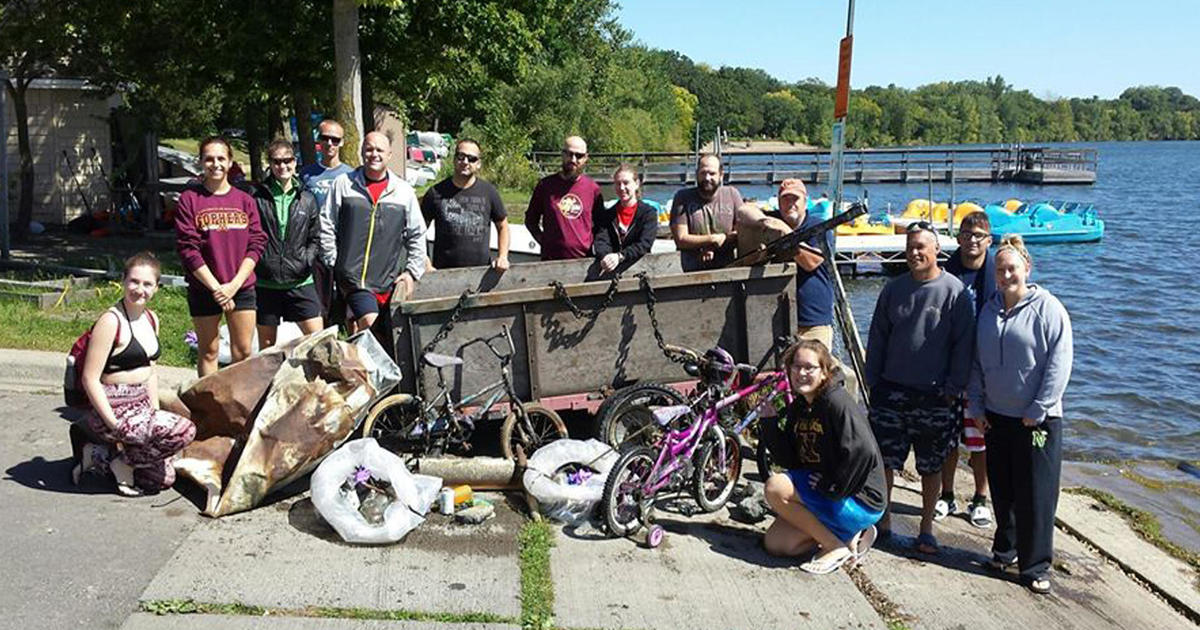'We Must Take Immediate Action': Walz, Flanagan Propose 100 Percent Clean Energy In Minn. By 2050
MINNEAPOLIS (WCCO) -- Gov. Tim Walz and Lt. Gov. Peggy Flanagan say immediate action is needed to combat the threat of climate change and on Monday unveiled a proposal to lead Minnesota to 100 percent clean energy.
"Climate change is an existential threat," Walz said. "If Washington won't lead, Minnesota will. These proposals would put us at the forefront of addressing climate change. Minnesota will pioneer the green energy economy—creating jobs while protecting our planet for generations to come."
The set of policy proposals, called "One Minnesota Path to Clean Energy", has three parts: 100 Percent Clean Energy by 2050, Clean Energy First and Energy Optimization.
Watch the press conference below:
The first part would require all electric utilities in Minnesota to only use carbon-free energy resources by 2050, but would allow each utility the flexibility to choose how and at what pace they meet the standard.
Clean Energy First is a regulatory policy proposal that would require a utility, when it proposes replacing or adding a new power generation, to prioritize energy efficiency and clean energy resources over fossil fuels -- sources like solar and wind energy.
"We need to stop burning fossil fuels because it pollutes our environment, it's changing our climate for the worse and it's no longer economical. This plan sets a clear date and destination for Minnesota's clean energy journey, along with the pathway to get us there. Minnesota should be a state that continues to lead on this, and we know we can," Flanagan said.
Lastly, Energy Optimization would raise the state's Energy Efficiency Resource Standard for investor-owned electric utilities and expand the Conservation Improvement Program that assists households and businesses save on their utility bills by using energy more efficiently.
Rep. Chris Swedzinski, who is the Republican Lead on the House Energy and Climate Finance and Policy Division, issued the following statement in response to the proposal:
"Governor Walz's extreme energy proposals would cause Minnesotans' energy bills to skyrocket, force the closure of reliable and cost-effective power plants, and puts Minnesota all-in on technology that simply cannot provide the reliable power you need to keep the lights on and heat your home in the winter. The recent cold-snap showed how important it is to have an energy grid that is reliable and won't falter even during the worst polar vortexes—betting on unproven technology will be expensive and risky for the state.
"Rather than bending to every demand of environmental activist groups by blocking the Line 3 pipeline and backing expensive energy mandates, the Governor should embrace a true 'One Minnesota' all-of-the-above energy strategy that ensures Minnesotans have energy that is reliable and affordable."
In a brief statement, Republican Senate Majority Leader Paul Gazelka said he worried about brutal cold snaps, saying "If we have a cold spell like we did recently, where it's 22 below ... wind does not work for energy. We have to include baseload power ... nuclear energy."
Gov. Walz's commerce commissioner Steve Kelley said, for now, the governor's plan does include nuclear energy as clean energy.
Walz and Flanagan say the policies build on the success of Minnesota's Next Generation Energy Act, which requires utilities to get at least 25 percent of their electricity from renewable energy sources by 2025. That law was passed in 2007 and signed into law by Gov. Tim Pawlenty. Minnesota is currently at 26 percent clean energy.
According to the federal government, nuclear power currently generates an estimated 23 percent of Minnesota's electricity, while another 40 percent is generated by coal-fired electric plants. Nearly all of the coal comes via rail from Montana and Wyoming. The government says that Minnesota's reliance on coal dropped from 49 percent in the last four years.
Minnesota's largest utility, Xcel Energy, has already publicly committed to generate 100 percent of its clean energy by 2050.



